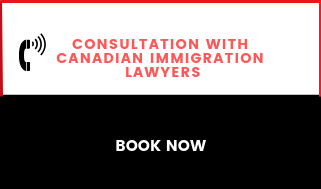Starting a new life in Canada is a dream for many, filled with promises of opportunity, adventure, and a fresh start. However, receiving a rejection from Immigration, Refugees and Citizenship Canada (IRCC) can feel like a door slamming shut on that dream. But don’t lose hope!
A visa rejection is not the end of your journey; rather, it can be a valuable learning experience that opens up new avenues. Understanding the nuances of your situation—whether your application was refused or returned—can help you take the following steps toward achieving your Canadian dream.
Refused VS Returned Visa Applications
Refused vs. Returned Visa Applications refer to two distinct outcomes in the visa application process that can significantly impact an applicant’s journey. It is crucial to understand the differences between the two so that all applicants can effectively navigate the immigration process and improve their chances of success in future applications.
Refused Applications
An application is considered refused when a visa officer determines it fails to meet the criteria for the specific visa category you are applying for.
This refusal can stem from various factors, including:
- Insufficient Documentation: Missing or incomplete documents that fail to demonstrate your eligibility.
- Medical Inadmissibility: Health conditions that may pose risks to public health or safety (rare).
- Criminal Inadmissibility: Past criminal activity that violates admissibility standards (rare).
Implications of Refusal
- Any government processing fees paid are typically non-refundable.
- Additional steps may be needed, depending on the reason for refusal.
How to proceed after Visa Refusal?
If your visa is refused, the situation can become more complex compared to a returned application. Let us explore some situations and how to deal with them:
- If your visa is refused due to Medical or criminal Inadmissibility, you may Contact a qualified Canadian immigration lawyer to explore your options. You may also contact ImmiLaw Immigration Professional Corporation for expert assistance from our Immigration lawyer.
- If the refusal was due to inadequate documentation, you may still be eligible to enter Canada; however, you must reassess and strengthen your documentation. Engaging a Canadian immigration lawyer can be beneficial in correcting any errors from your initial submission.
- Temporary visa refusals arise from concerns that applicants may not depart Canada after their status expires. So, a refusal for a temporary visa—for study, work, or tourism— does not affect your eligibility for Canadian PR. A PR application is intended for long-term settlement in Canada. Thus, a refusal does not necessarily jeopardize your aspirations for living in Canada.
Returned Applications
A returned application indicates that your submission lacked adequate documentation to establish your eligibility or that the program’s quota was full at the time of receipt by immigration authorities.
Implications of Return:
- Government processing fees are usually refunded.
- The application is not assessed for eligibility, meaning no formal decision is made.
What to do if your Visa Application is Returned?
- If your application is returned due to exceeding quota limits for your chosen program, you must wait until the next intake period. Meanwhile, you may also explore other immigration categories that are still accepting applications.
- If the return was due to missing documents or errors in your application forms, this can often be rectified easily. You can address the issue by submitting the required documentation and reapplying without significant hurdles.
What Are the Common Reasons for Visa and Immigration Application Rejections?
When applying for various types of visas or immigration programs, understanding the common reasons for rejection can significantly improve your chances of success. Different categories, including visitor visas, student permits, temporary worker permits, and permanent residency applications, require specific requirements. If you fail to submit any document or so, your chances of visa rejection will be very high. So, you must understand the potential pitfalls before submitting your application.
By understanding these factors, you can better prepare your application and improve your chances of success.
Here are some of the common mistakes that any applicant can make that lead to visa rejection:
Common Reasons for Study Permit Rejections
- Weak Statement of Purpose (SOP): Unclear or unconvincing study plans and future goals.
- Insufficient financial proof: Inability to demonstrate funds for tuition and living expenses.
- Concerns About Intent: Suspicions that you may not leave Canada after your studies.
- Low Language Proficiency: Applicants do not meet the minimum language test scores.
Visitor Visa Rejections
- Lack of strong home ties: if you fail to prove your strong ties to your home country and are unable to prove that, you will return after your visit.
- Inadequate Financial Support: Failure to prove you can cover travel and living expenses during your stay.
- Incomplete or Inconsistent Documents: Missing documents or discrepancies in the information provided.
Temporary Worker Permit Rejections
- Lack of Qualifications: Not meeting the skills or experience requirements for the job.
- Job Offer Issues: Invalid or unverified job offers from Canadian employers.
- LMIA Concerns: Failure to provide a valid Labour Market Impact Assessment (if required).
Permanent Residency (PR) Rejections
- Low Comprehensive Ranking System (CRS) Score: Not scoring enough points under Express Entry criteria.
- Inadmissibility: Medical or criminal inadmissibility issues.
- Misrepresentation: Providing false or misleading information in your application may result in visa rejection.
Family Sponsorship Rejections
- Ineligibility of Sponsor: Not meeting financial or legal requirements to sponsor a family member may cause rejections.
- Missing Proof of Relationship: Insufficient evidence of genuine relationships for spousal or dependent sponsorship.
What are the Other Causes for Visa Rejections?
Certain countries require medical clearances for long-term visas. Many Indian visa applications were rejected due to health-related issues. Conditions that may burden the healthcare system of the destination country can be grounds for denial.
If you have unexplained gaps in your travel history or have visited countries flagged for immigration violations, that can be one reason for visa rejections.
Other common causes include applying under the wrong visa category, which can result in rejection. Timing your application is also crucial. Submitting a visa application too early or too late can lead to rejection.
By being aware of these common pitfalls and preparing accordingly, applicants can enhance their chances of successfully obtaining their desired visa or immigration status.
ImmiLaw Immigration Law Professional Corporation provides exceptional legal representation in immigration matters, ensuring the highest chances of visa success. Our dedicated team offers personalized services and one-on-one consultations, assisting international students, temporary foreign workers, entrepreneurs, and candidates seeking temporary or permanent residence in Canada.
Reach out to us and take the first step toward making Canada your home!
Read to Know: What is Judicial Review and How Can It Help with Immigration Refusals?


